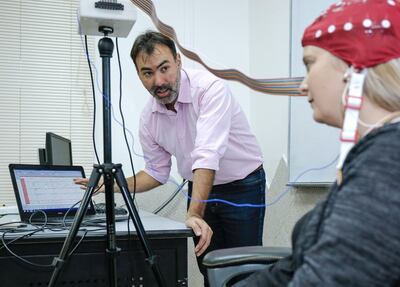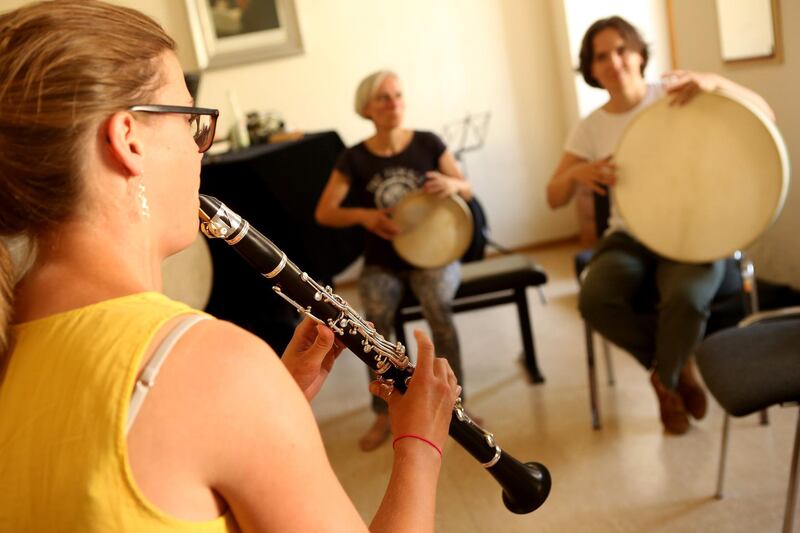Dubai schools are putting new emphasis on music lessons, as the focus on science and technology threatens to leave the subject lagging.
A report from Dubai's education regulator the Knowledge and Human Development Authority found that 20 per cent of pupils play a musical instrument at least three times a week. That compares to 34 per cent in the UK, according to the Associated Board of the Royal Schools of Music in London.
As with much of the developed world, the UAE is urging more young people to pursue science, technology, engineering and mathematics subjects but educators are determined to keep music in the classroom.
Andi Price, English lead teacher at Ranches Primary School in Dubai, said that balancing music and the arts with Stem subjects is a challenge. His school is turning to technology to address the issue.
“It is hard having that emphasis on all the arts, not just one specific one,” Mr Price said.
“The school is trying to get a balance. Music is affected the most but we are trying to integrate music on devices.”
The school is teaching children to compose music on electronic devices. It also has a music section and holds recitals with parents invited to watch.
Using music as a foundation to teach subjects may help raise its profile of the activity, Mr Price said.
“If you use music as a stimulus to teach, you can teach lots of things through rhythm and sequencing and maths,” he said. “It’s how you use those subjects to make sure you teach basic skills.”
Marc Starr, high school principal at Dubai American Academy, said it recently started a course in electronic music because children were more interested in developing their music in that medium.
“Our fine arts and music programme has grown,” Mr Starr said.
________________
Read more:
IGCSE vs GCSE: British schools in the UAE plot their own course as education debate rages
Game over: More than half of Dubai private school kids don't play team sports due to high costs
Dubai teachers dispute report that says only 55 per cent of pupils read for pleasure
________________
He said that with the growth in technology, the interest in traditional musical instruments such as the trumpet or violin had diminished globally.
“It’s not a challenge to get them involved in the arts,” Mr Starr said. “Once children get to Grades 10 and 11, we offer the International Baccalaureate diploma, which is more academic. We may see some drop in the arts in our IB pupils.”
He said that as pupils went through high school there was a move towards academic subjects as their parents wanted them in the best universities.
“However, top universities want pupils who are well-rounded and not just focused on academics,” Mr Starr said. “Getting involved in extracurricular activities helps to build positive self-esteem in children.”

Dr Efthymios Papatzikis, an expert in the educational neuroscience of music and sound at Canadian University Dubai, said: “Children and adults don’t know they can study music in UAE. We don’t have a structured environment for certifications, programmes or teacher training.
“A greater awareness is required. We have to discuss this at a societal and ministerial level. These are the reasons for the low numbers taking up music education.
“Music is part of Emirati culture as well. I see a lot of activity in dance and music in the tradition here. It’s a matter of advertisement. More people need to know about the wider benefits of music to the community. We already have it, we live with it.”
The university organised a music conference this month.
This year, a BBC survey of 1,200 schools in the UK found that creative arts subjects such as music, art and drama were being cut back.
Nine in every 10 schools that took part said they had reduced lesson time, staff or facilities in at least one arts subject.
Their reasons included more pressure on academics and funding. One in 10 schools said they relied on donations from parents for art and music.







